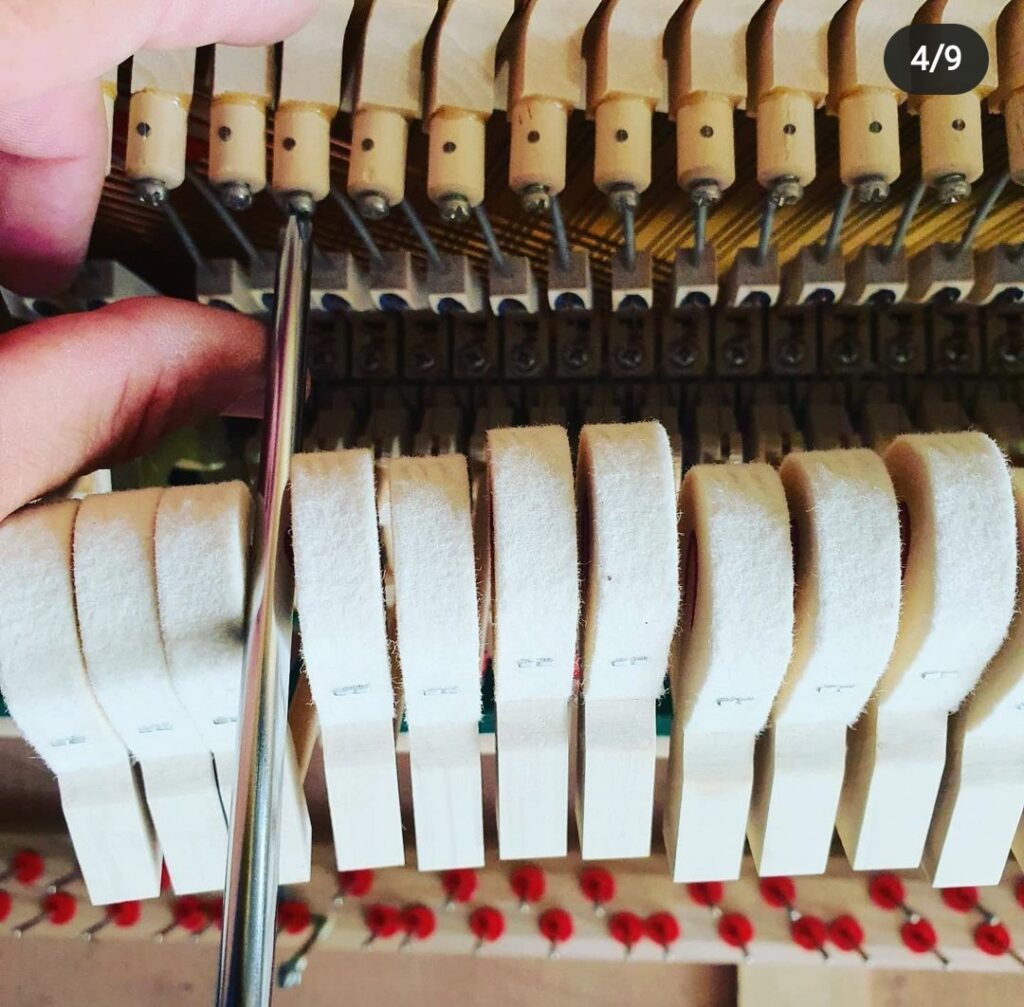Piano Regulation
You’d be hard pressed to find somebody who didn’t know that pianos need to be tuned, but taking proper care of your instrument is actually a bit more involved than that, and it isn’t something that any tuner can do. An acoustic piano, be it a grand or an upright, contains not hundreds but thousands of parts, most of which are in the action (the mechanism between the keyboard and the strings), and most of those are small, precise parts that need to be positioned within a very small tolerance to function properly.
“think of a Mechanical Pencil…”
To regulate a piano is to adjust all of the parts so that they operate uniformly and efficiently. The greatest difference between a new and a used piano is that the parts in the used piano have become worn and no adjustments have been made to compensate for the wear. The simplest way to visualize this is to think of a mechanical pencil. As you write you need to compensate for the wear on the pencil lead by clicking to expose more lead. Otherwise the quality of the writing is progressively compromised to the point of not writing at all.
Does Regulating A Piano Make a Difference just for Experienced Pianists?
As parts in a piano wear, they no longer make proper contact with one another, compromising the action and its uniformity and predictability. This is very frustrating for all pianists and a great detriment to the beginning pianist. One very obvious symptom of a piano in need of regulation is the inability to play softly. Sometimes when a pianist tries to play pianissimo, no sound comes out at all. This is because the hammers do not make contact with the strings unless a medium strength blow is delivered by the pianist. Another symptom is inconsistency in the amount of pressure required to play from one key to the next. Some will be more or less difficult to depress than others.
So, what is done during regulation that makes such a great difference in the uniformity and predictability of the piano? There are actually around thirty-five steps in total.
Regulating your piano can make a world of difference in how it feels to play and the enjoyment you can experience while playing. It is critical for the beginning pianist to play on a well regulated instrument so they do not quit prematurely. Your piano can feel much like it did when it was new.
Please feel free to contact us for more information, a quote or to make an appointment.




